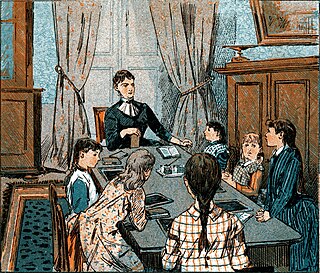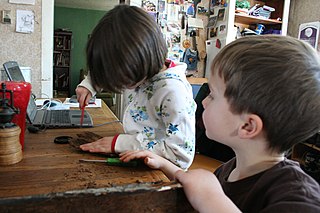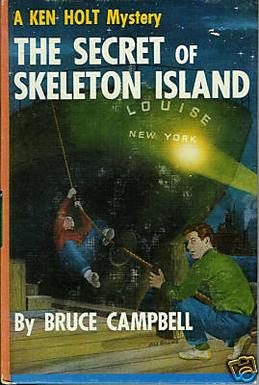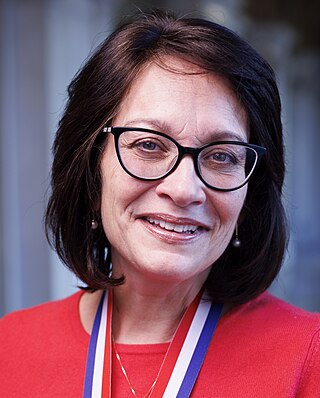
Homeschooling or home schooling, also known as home education or elective home education (EHE), is the education of school-aged children at home or a variety of places other than a school. Usually conducted by a parent, tutor, or online teacher, many homeschool families use less formal, more personalized and individualized methods of learning that are not always found in schools. The actual practice of homeschooling varies considerably. The spectrum ranges from highly structured forms based on traditional school lessons to more open, free forms such as unschooling, which is a lesson- and curriculum-free implementation of homeschooling. Some families who initially attended a school go through a deschool phase to break away from school habits and prepare for homeschooling. While "homeschooling" is the term commonly used in North America, "home education" is primarily used in Europe and many Commonwealth countries. Homeschooling should not be confused with distance education, which generally refers to the arrangement where the student is educated by and conforms to the requirements of an online school, rather than being educated independently and unrestrictedly by their parents or by themselves.

Children's literature or juvenile literature includes stories, books, magazines, and poems that are created for children. Modern children's literature is classified in two different ways: genre or the intended age of the reader, from picture books for the very young to young adult fiction.

A child (pl. children) is a human being between the stages of birth and puberty, or between the developmental period of infancy and puberty. The term may also refer to an unborn human being. In English-speaking countries, the legal definition of child generally refers to a minor, in this case as a person younger than the local age of majority, regardless of their physical, mental and sexual development as biological adults. Children generally have fewer rights and responsibilities than adults. They are generally classed as unable to make serious decisions.

Unschooling is a practice of self-driven informal learning characterized by a lesson-free and curriculum-free implementation of homeschooling. Unschooling encourages exploration of activities initiated by the children themselves, under the belief that the more personal learning is, the more meaningful, well-understood, and therefore useful it is to the child.

John Caldwell Holt was an American author and educator, a proponent of homeschooling, and a pioneer in youth rights theory.
Adultism is a bias or prejudice against children or youth. It has been defined as "the power adults have over children", or the abuse thereof, as well as "prejudice and accompanying systematic discrimination against young people", and "bias towards adults... and the social addiction to adults, including their ideas, activities, and attitudes".
Leila Berg was an English children's author, editor and play specialist. She was well known as a journalist and a writer on education and children's rights. Berg was a recipient of the Eleanor Farjeon Award.
Anti-schooling activism, or radical education reform, describes positions that are critical of school as a learning institution and/or compulsory schooling laws; or multiple attempts and approaches to fundamentally change the school system. People of this movement usually advocate alternatives to the traditional school system, education independent from school, the absence of the concept of schooling as a whole, or the right that people can choose how, where and with whom they are educated.

Ken Holt is the central character in a series of mystery stories advertised as being for readers between the ages of eleven and fifteen years old. The series was published by Grosset & Dunlap between 1949 and 1963, and the mysteries continued to be sold in the United States until at least 1966.
Patrick Farenga is an American writer and educational activist. He is known as a leading advocate of the modern homeschooling movement which started in the 1970s.

Children's geographies is an area of study within human geography and childhood studies which involves researching the places and spaces of children's lives.
Fear of children, or occasionally called paedophobia, is fear triggered by the presence or thinking of children or infants. It is an emotional state of fear, disdain, aversion, or prejudice toward children or youth. Paedophobia is in some usages identical to ephebiphobia.
The youth rights movement in the United States has long been concerned with civil rights and intergenerational equity. Tracing its roots to youth activism during the Great Depression in the 1930s, the youth rights movement has influenced the civil rights movement, opposition to the Vietnam War, and many other movements. Since the advent of the Internet, youth rights is gaining predominance again.

How Children Learn is a nonfiction book by educator John Caldwell Holt, first published in 1967. A revised edition was released in 1983, with new chapters and commentaries. It is considered a prominent text in the homeschooling advocacy movement.

How Children Fail is a non-fiction book by John Holt that was published in 1964 and republished in 1982 in a revised edition. It has sold over a million copies. In it, he cites personal teaching and research experiences that led him to the belief that traditional schooling does more harm than good to a child's ability and desire to truly learn.

The history of childhood has been a topic of interest in social history since the highly influential book Centuries of Childhood, published by French historian Philippe Ariès in 1960. He argued "childhood" as a concept was created by modern society. Ariès studied paintings, gravestones, furniture, and school records. He found before the 17th-century, children were represented as mini-adults.

Centuries of Childhood: A Social History of Family Life is a 1960 book on the history of childhood by French historian Philippe Ariès known in English by its 1962 translation. It is considered the most famous book on the subject, and it is known for its argument that the concept of "childhood" is a modern development.

Meg Medina is an American children’s book author of Cuban descent whose books celebrate Latino culture and the lives of young people. She is the 2023 – 2024 National Ambassador of Young People’s Literature. Medina is the recipient of the 2019 John Newbery Medal for her middle grade novel, Merci Suárez Changes Gears and the Pura Belpré Award for Yaqui Delgado Wants to Kick Your Ass (2014) and the Pura Belpré Award Honor Book in 2016 for Mango, Abuela and Me).

Kekla Magoon is an American author, best known for her NAACP Image Award-nominated young adult novel The Rock and the River, How It Went Down, The Season of Styx Malone, and X. In 2021, she received the Margaret Edwards Award from the American Library Association for her body of work. Her works also include middle grade novels, short stories, and historical, socio-political, and economy-related non-fiction.













